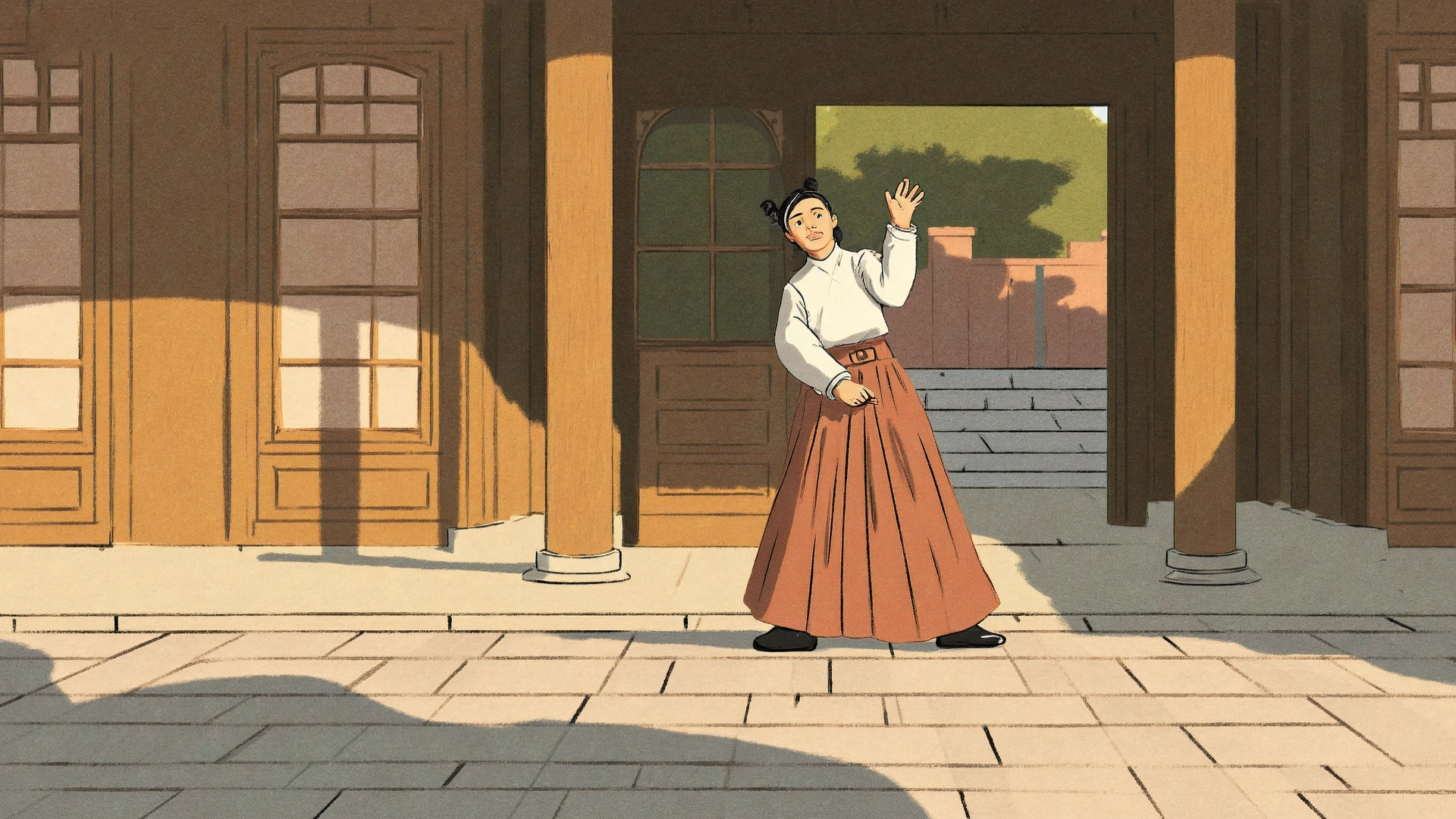Idiom story ——东施效颦

During the Spring and Autumn period, Xishi, one of China’s Four Great Beauties from the State of Yue, was admired for her charm and elegance. However, she suffered from heart pain. One day, after washing clothes by the river, she felt chest pain and instinctively held her chest while frowning. Though her expression showed discomfort, villagers praised her appearance, saying she looked even more beautiful that way.
In the same village lived a girl named Dong Shi, who was considered unattractive. Seeing the villagers admire Xishi’s gesture, Dong Shi imitated the way Xishi held her chest and frowned, hoping to receive the same compliments. But because she was naturally plain-looking and her imitation was forced and awkward, people were repelled by her act. Some quickly closed their doors, others hurried away with their families, and they looked down on Dong Shi even more than before.
This story gave rise to the idiom 东施效颦, which means to blindly imitate others but achieve a very bad or ridiculous effect.
Summary
- Idiom: 东施效颦
- Pinyin: dōng shī xiào pín
- Literal Translation: Dong Shi imitates the frown
- Extended Meaning: Used to describe someone who blindly copies others but fails miserably or makes a bad impression.
Character Introduction
Xishi (西施) – One of the Four Great Beauties of Ancient China.
Xishi was a legendary beauty from the Spring and Autumn period, born in the state of Yue. She is considered one of the “Four Great Beauties” in Chinese history. According to historical tales, even the fish in the river would forget to swim and sink when they saw her reflection—hence the saying 沉鱼落雁,闭月羞花 (even fish and birds are captivated by her beauty).
Though she suffered from heart illness, even her pained expressions were seen as graceful and charming. Her elegant demeanor left a lasting cultural impression in both poetry and legend.
Dongshi (东施) – The Imitator.
Dongshi was a fictional character who lived in the same village as Xishi. She was known for being unattractive in appearance. After seeing how people praised Xishi’s beauty, especially the way she looked while holding her chest in pain and frowning, Dongshi tried to imitate her posture and expressions, hoping to gain the same admiration.
However, the imitation backfired—her exaggerated mimicry made her look even more awkward and unpleasant. People avoided her even more than before. Dongshi became a symbol of blind and misguided imitation, which is the core meaning of the idiom “东施效颦 (Dongshi Imitates the Frown).”
Vocabulary Corner
| Chinese | Pinyin | English |
|---|---|---|
| 东施效颦 | dōng shī xiào pín | Dongshi imitates the frown / blind imitation |
| 西施 | xī shī | Xishi, one of the Four Great Beauties |
| 东施 | dōng shī | Dongshi, imitator of Xishi |
| 沉鱼落雁 | chén yú luò yàn | Even fish and birds are captivated by beauty |
| 闭月羞花 | bì yuè xiū huā | Even the moon hides and flowers feel ashamed, describing extreme beauty |
| 效颦 | xiào pín | Imitate the frown |